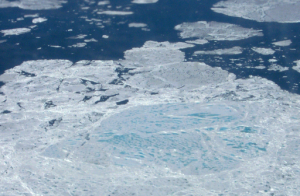Forest fires rage in the American Southwest, droughts continue to parch sub-Saharan Africa, and massive flooding recently crippled Duluth, Minnesota: it doesn’t matter if you “believe” in it, climate change is knocking at our door.
Climate scientists have long warned of adverse weather events linked to climate change. Long term trends– increasing water and air temperatures, precipitation falling more frequently as rain than snow, rising sea levels, etc.- are evident in the data. While scientists can use data to confirm past trends, they are unable to predict future trends given the complexity of ecosystem interactions and climate models.
The uncertainties associated with climate predictions are not necessarily debilitating, however. Scientists have developed methods to control for such ambiguities. Also, some level of uncertainty is inherent to any projection and decision-making process. So, why, despite overwhelming evidence of a rapidly changing climate, have policy makers failed to cope with uncertainty and enact serious climate change legislation?
Shortsightedness has created political inertia surrounding climate change legislation primarily because climate change is a long term phenomenon. Kathleen Masterson of Capital Public Radio recently mentioned Andy Wirth’s outlook on climate threats. As the CEO of Tahoe’s Squaw Valley Ski Resort, Wirth has obvious economic interests at risk if snowfall dramatically decreases. But, Wirth asserts that his company, “can’t base their business plan on suggestions that snowpack might be reduced by half in the next 50 years.” He goes on to affirm the gravity of climate change to his company’s livelihood, but holds that business decisions have to be made on a daily basis. Policy makers, like Wirth, have failed to account for climate impacts as part of a long-term strategy in favor of short term benefits.
Will Hutton recently found a fundamental flaw in a common political argument against climate legislation. Driven by skeptic scientists, who make up a tiny minority of the scientific community, policy makers hesitate to accept climate change in fear of accepting the need for government action. These same politicians most often call for federal spending cuts by arguing that reducing expenditures today will ensure a future free of public debt. Their logic is simple, by making some sacrifices today, we avoid future welfare losses. They refuse, however, to accept this logic with regards to climate change. By enacting climate legislation today, though potentially costly, we could avoid calamitous costs from an increasingly temperamental climate.
Exacerbating the risks of climate change, population growth puts more people and infrastructure in harm’s way during disasters. Hence, the International Panel on Climate Change issued a 594-page report hoping to better inform policymakers on the need for immediate action. The question remains, however, if U.S. and international lawmakers will heed to the advice, or continue “business as usual” in search of prosperity today at the cost of disaster tomorrow.
Last week’s Rio+20 Conference has released its outcome document, and created a degree of ambiguity as to whether or not policymakers are ready to take acute action against climate change. In the document, delegates “acknowledge” climate change as a global crisis, and “recognize” different measures that address emissions reductions.
Despite their apparent awareness of climate change as a real threat, the delegates fail to lay out a course of action for mitigation and adaptation strategies.
So, while Rio+20 delegates took a positive step toward achieving international cooperation, climate policy must catch up with science and technology to secure our future before climate change is, in fact, a near-term crisis.
Individual nations should reach this conclusion and arrive at climate legislation, but their efforts must be part of an international one. After all, climate change poses a global security threat and will require global action to combat.



